The air was thick with anticipation. Voices buzzed, footsteps hurried across the compound, and the scent of freshly cooked delicacies wafted through the air. Something big was about to happen, something that would stay etched in our memories forever. It was my cousin's wedding day—a Yoruba wedding like no other.
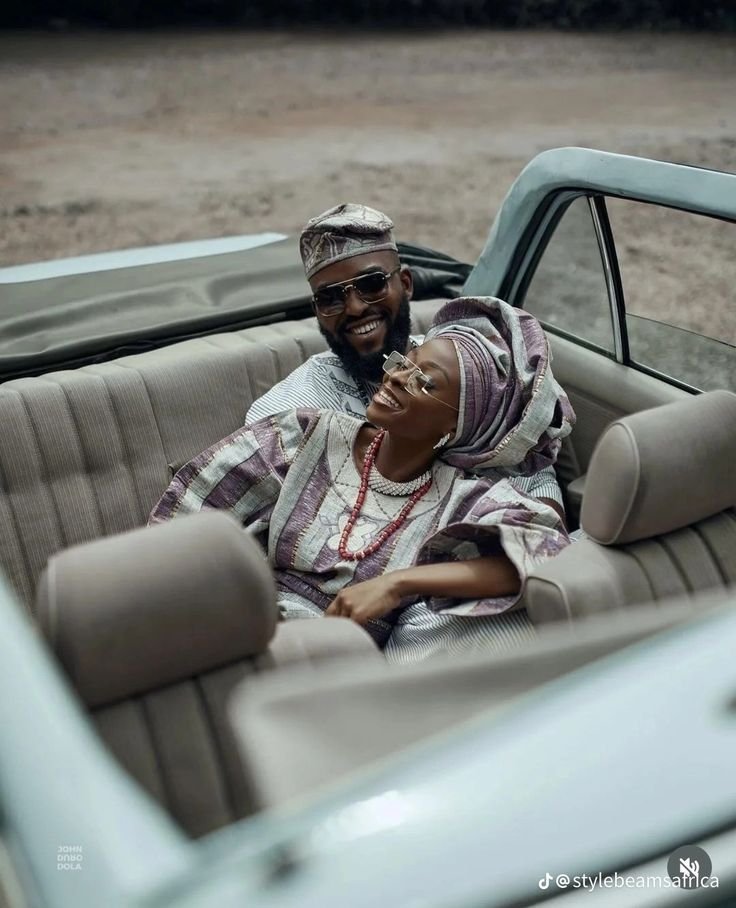 Image Source
Image Source
As a Yoruba girl from Nigeria, I had always been fascinated by the magic of Yoruba weddings. They weren’t just events; they were stories, woven with threads of tradition, honor, and love. This one, though, was different. This wasn’t just any wedding, it was personal. It was family. And so, allow me show you just how beautiful it is, through my lenses.
The Proposal Phase: A Prelude to the Union
Before the big day came the “Introduction,” or "Mo mi nmo e"as we Yoruba's like to call it. The morning it happened, the energy was already evident. Our family compound had transformed overnight after being thoroughly cleaned in anticipation. The groom’s family arrived in grand style, their entourage carrying baskets of fruits, kola nuts, and bottles of wine. The drummers at their side didn’t miss a beat, their songs filling the air with excitement and pride.
I remember watching the elders from the groom's and our families sit to exchange pleasantries, their voices measured and full of purpose. When the groom's family spoke the famous line, “We have come to pluck a flower from your garden,” the entire room chuckled knowingly. But amidst the laughter, there was a seriousness, a respect for the tradition being upheld.
As I sat in the corner grinning, I realized this wasn’t just a moment for the couple; it was a moment for two families to become one. We were expanding!
The introduction ceremony was the start of something new, a moment where our roots deepen and intertwine. On this day, a date was chosen for the engagement—the wedding itself. The elders, with wisdom etched into their years, blessed this chosen date, declaring it sacred for the union. Now tell me, what bride wouldn’t walk into her wedding day filled with joy and confidence, having received the heartfelt blessings of those who have watched her grow?
The Engagement Ceremony: A Celebration of Love and Culture
When the engagement ceremony, or Igbeyawo (Yoruba Language which translates to, "carrying the bride"), arrived, it was like stepping onto a stage where everyone knew their part. The gifts brought by the groom’s family as demanded by the bride's family were both symbolic and practical—yam tubers for sustenance, sugar for sweetness, salt for preservation, and owo iyawo (bride's price), a token of appreciation for the bride’s parents for giving their daughter good home-training. The most beautiful part of the event was the part where the bride's family returned the money (the bride's price) as a symbolic message that interprets, "our daughter is not for sale". This tells the groom and his family to treat their daughter—the bride, with affection because to her parent, she's still their precious child.
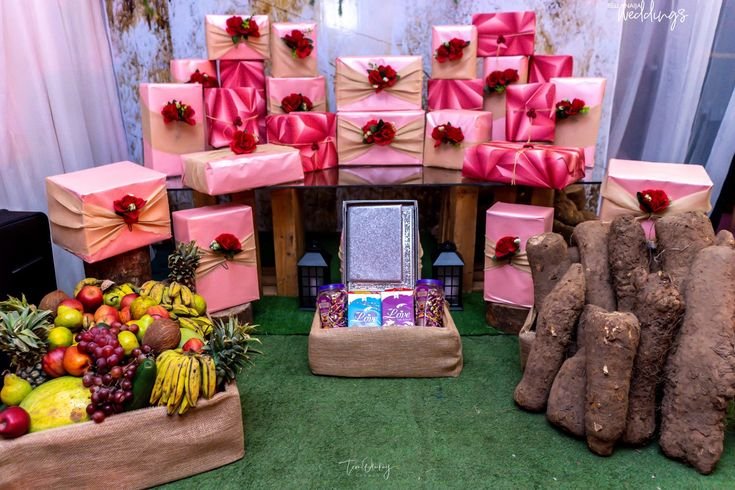 Image Source
Image Source
Then came the prostration. Yoruba culture places immense value on respect, and this ritual was its ultimate expression. The groom, along with his friends, prostrated flat on the floor in front of the bride’s parents. It’s both symbolic and humorous—the friends often exaggerate their falls, eliciting laughter from the crowd. My cousin’s husband went all out, and his dramatic “faint” after prostrating had everyone in stitches. It was a perfect blend of humor and reverence.
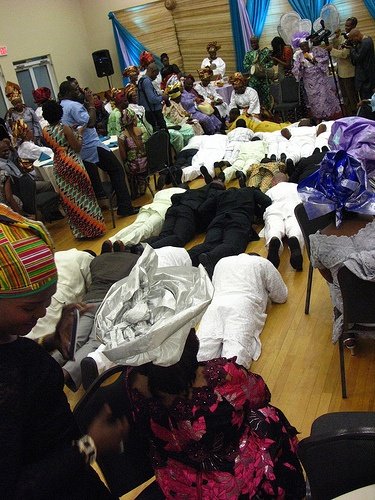 Image Source
Image Source
The moment we’d all been waiting for was the bride’s entrance. My cousin, adorned in a stunning asooke, danced into the room like royalty. Her veil hinted at the shy smile beneath, and as she knelt before her parents for their blessings, I couldn’t help but feel the weight of the moment as I watched her father become teary as he blessed her.
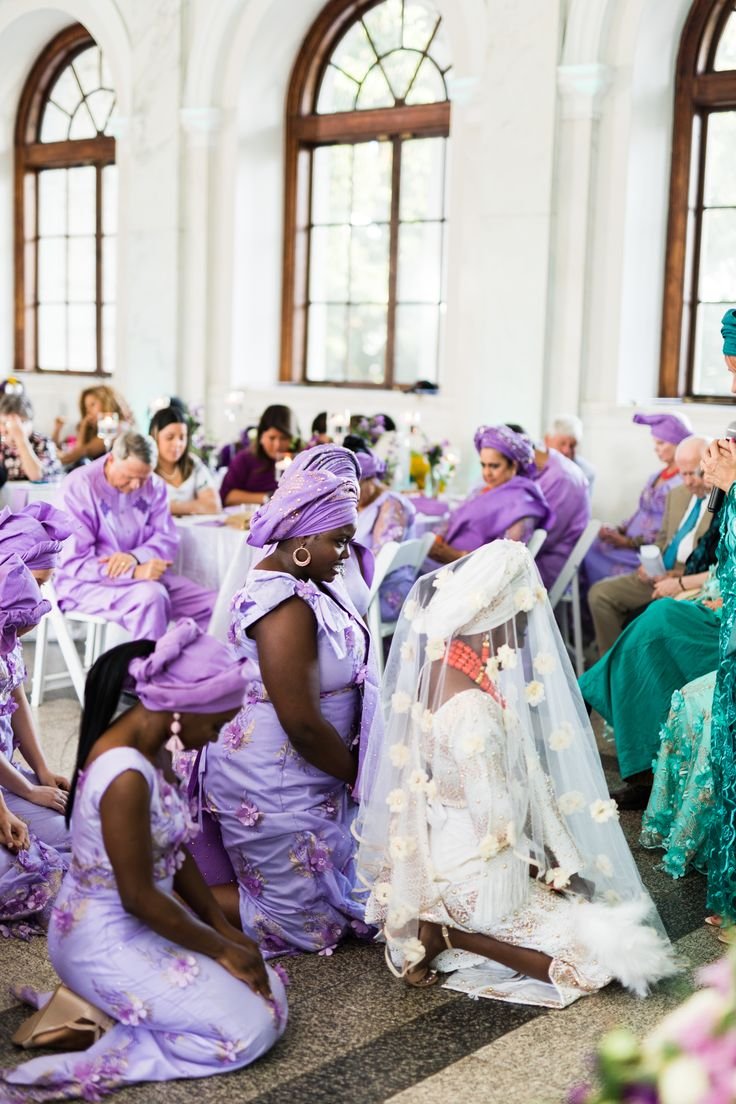 Image Source
Image Source
The Celebration: Food, Music, and Connection
No Yoruba wedding is complete without food and music, and this one delivered in abundance. We had jollof rice, pounded yam, efo riro (vegetable soup), asaro (yam porridge) and more.
The drummers were relentless. They didn’t just play; they called out guests by their names, praising their lineage and prompting them to spray money. My aunties, with their geles tied high and tight, were not left out, they danced like queens. The energy was infectious, and soon, everyone joined in the dance.
And of course, I joined the feast and festivities, claiming my rightful place in the “foodies association.” There’s no shame in savoring every bite at a Yoruba wedding!
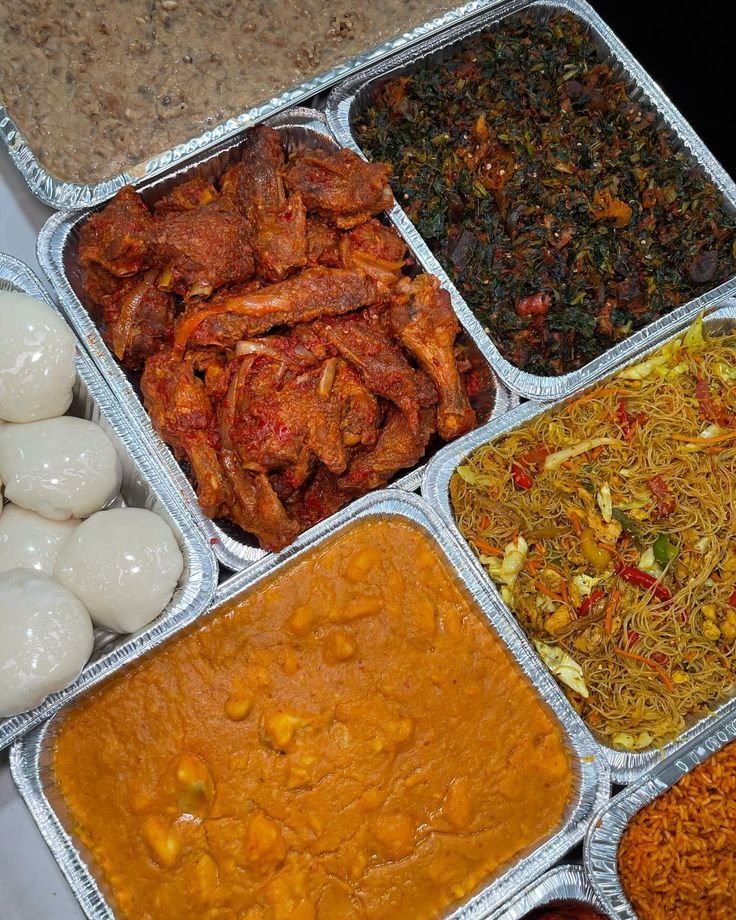 Image Source
Image Source
A Legacy to Hold Onto
By the time the wedding ended, I found myself reflecting on what it all meant. This wasn’t just a wedding; it was a reminder of who we are as Yoruba people. Every tradition, every laugh, every prayer—it was all part of a larger story.
It made me think about my own journey. If there’s one thing I want to carry into 2025, it’s this sense of connection which I know will bring me the most important thing I hope to attain in 2025; stability. Connection to my culture. To my family. To myself. Weddings like my cousin's remind me that our heritage isn’t just something to be celebrated, it’s something to be lived and continued.
Who knows? Maybe 2025 will bring another Yoruba wedding into my life. Maybe it’ll even be my own. (Wink!)
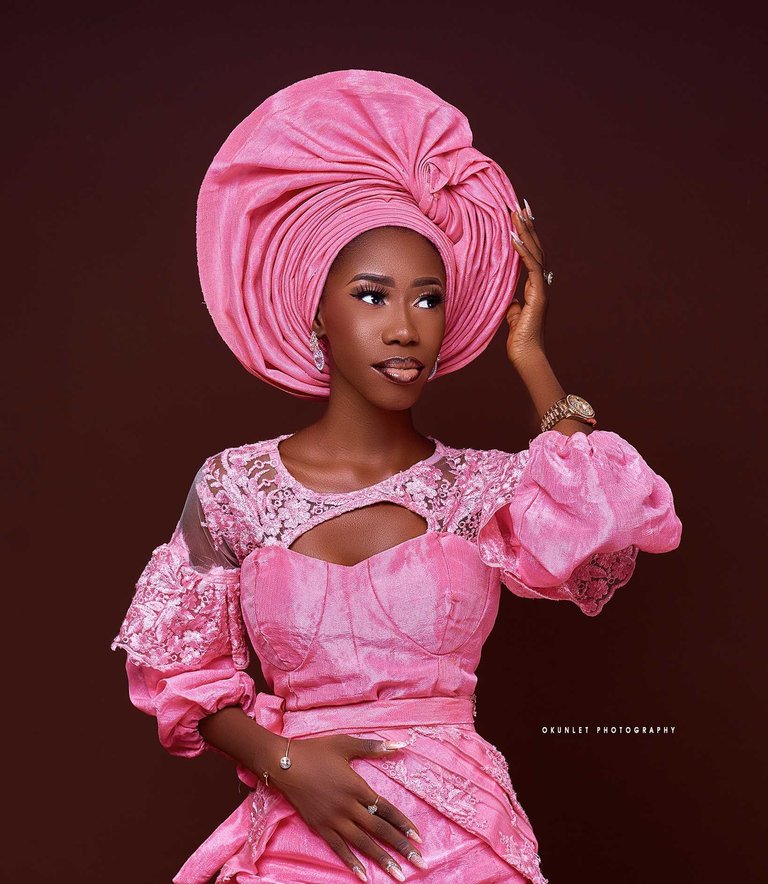 A picture of myself
A picture of myself
Thank you for reading!



